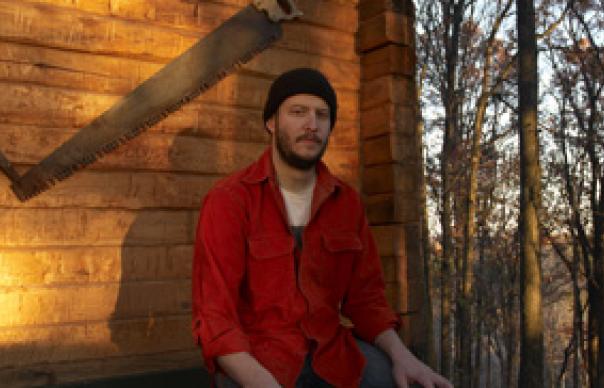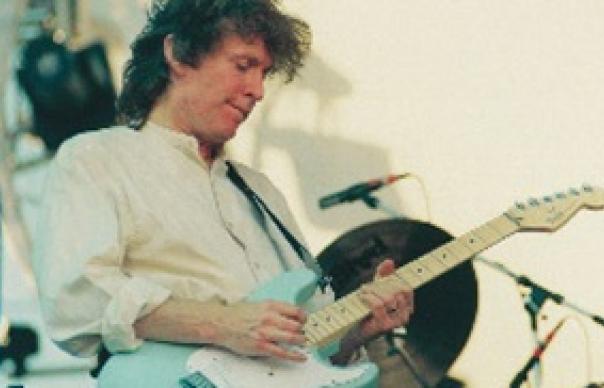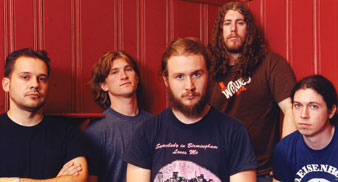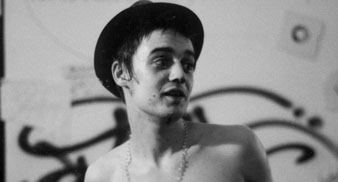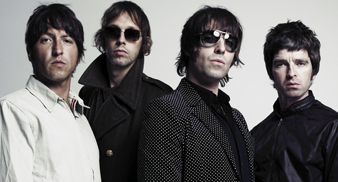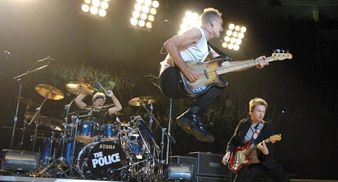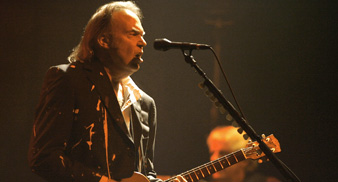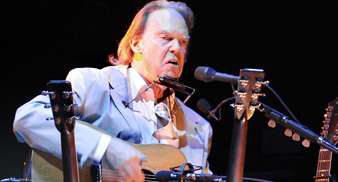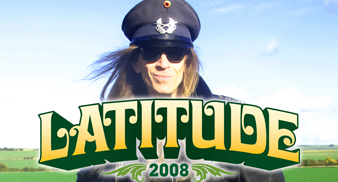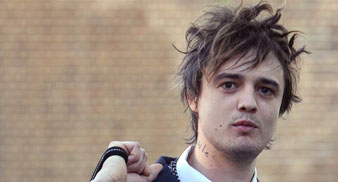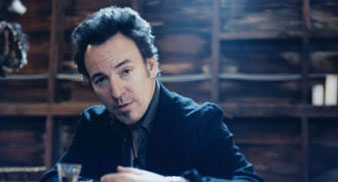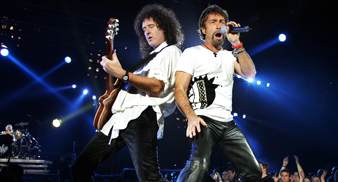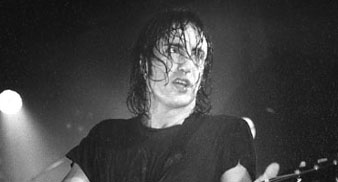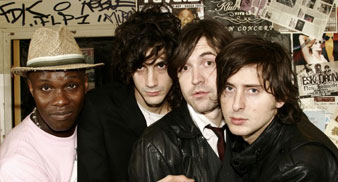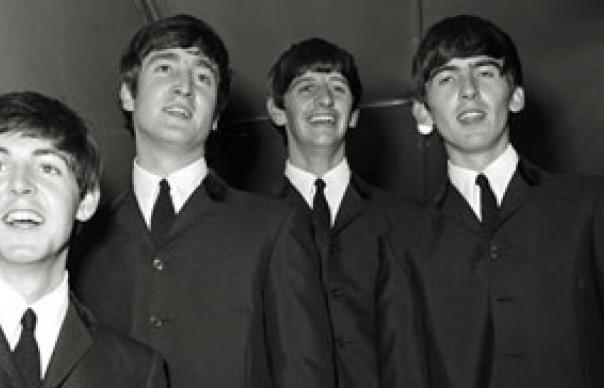Rootling around the internet the other day, I came across an interesting picture of Justin Vernon, the 27-year-old singer-songwriter from Wisconsin who records under the nom de guerre of Bon Iver. In the photograph, it is snowing heavily. Vernon and his friend Keil are standing on the edge of dense woodland, wearing fluorescent orange outfits and holding rifles. The two men are going hunting, and we learn from the interview (at stereogum.com, incidentally) that during the recording of his debut album, For Emma, Forever Ago, Vernon slaughtered, butchered and ate two deer. It is not the sort of backstory that usually comes with a hip American indie record, and listening to Vernon’s extraordinary debut, it’s hard to equate this gun-toting man – albeit one whose methodology is closer to Hugh Fearnley-Whittingstall than Ted Nugent - with the thoughtful, tender, at times angelic folksinger who inhabits the songs. But while the details might disturb squeamish vegetarians like myself, the sometimes gory realities of self-sufficiency and survival are integral to For Emma. . . On one level, we could bracket Bon Iver – the name’s an artful misspelling of the French for “Good winter” - as part of a revitalising new wave of Americana, along with Fleet Foxes, Dawn Landes, Sam Amidon, plentiful fingerpickers like Jack Rose, The Cave Singers, even more raucous rock bands like Band Of Horses and Howlin Rain. I suspect, though, that Justin Vernon would recoil at the prospect of being part of a scene. For Emma, Forever Ago is a record entirely predicated on isolation. It operates so securely and intensely in its own world – a world of snow and silence and long-percolated memories – that to listen sometimes seem like an intrusive act. The album was recorded, crucially, in his father’s log cabin, out in the woods of North-east Wisconsin, about 70 miles from Vernon’s hometown of Eau Claire. In November 2006, after his band DeYarmond Edison (no, me neither) broke up, Vernon headed up to the cabin for three months, planning to “hibernate”. As the weather got colder, he found his own food, chopped down trees for wood, collected his thoughts and formulated them into a suite of songs. Some extra drums and horns were added later, in a studio in Raleigh, North Carolina. Fundamentally, though, For Emma, Forever Ago is a genuinely solo record. At its heart is an acoustic guitar and Vernon’s calmly expressive falsetto, and since 500 copies of the album first appeared on the singer’s own label last autumn, standard review practise has seen fit to compare the sound with that of Iron & Wine. But it’s how Vernon treats that guitar, that voice, and the environment in which they were recorded that makes For Emma such a magical, hyper-real experience. It begins straightforwardly enough, with “Flume”, and with the sound of an acoustic guitar being strummed in an empty room; scuffy, ungated, revelling in the space. After 20 seconds, though, Vernon’s voice wafts in. “I am my mother’s only son. It’s enough,” he is singing, and there’s an echoey quality to it which is soon exacerbated by some celestial multitracking. After two and a half minutes, a brittle scrabble of guitar has come into the foreground, and for a few seconds the song dissolves. There are some discreetly unnerving electronic creaks, scrapes and gurgles, but we can also hear Vernon moving around the room, detect the inhospitable weather beyond the walls. Somehow, he seems to capture the performance with a forensic intimacy, while simultaneously imbuing it with an extra, ethereal dimension. “Flume” sets the tone for the eight songs which follow it. “Lump Sum” opens with a swooning choir of Justin Vernons, as if he has somehow corralled the voices in his head into some useful, harmonious work (talking of voices in the head, For Emma… is best experienced in headphones, the better to hear every squeaking string and profound sigh). “The Wolves (Act I And II) finds his multitracked voice taking on a faint gospel tinge, set against a remorselessly spare guitar, tapped as much as strummed. “Someday my pain will mark you,” he intones, “Harness your blame and walk through”. Far in the distance, mystifyingly, there appears to be a police siren. Plenty of For Emma seems to deal with a vague kind of anguish, and the lyrics often skirt impressionistically around clear meaning. But the emotional heft is increased – rather than dissipated – by the layered vocals, so that when the words are direct, the impact is huge. “Skinny Love” finds him exasperated and recriminatory: “I told you to be balanced,” he rails, “I told you to be kind/ Now all your love is wasted?/ Then who the hell am I?” “The Wolves” climaxes with him incanting, “What might have been lost don’t bother me,” with the voluptuous soulfulness of TV On The Radio, while rumbling drums sound like exploding fireworks in the background. If we crudely assume that Vernon has undergone some terrible personal heartbreak, making rapturous music in the middle of nowhere is evidently no mean consolation. And so For Emma flows on, through “Blindsided”, where the subtle electronic shading recalls the Austrian avant-gardist, Fennesz. Through “Creature Fear”, where hammered drums and a marauding bassline lead on into “Team”, the album’s seething equivalent of an instrumental freak-out. The guitar fuzzes and strafes, closer to that of Kevin Shields than any of Vernon’s supposed folk peers. Finally, he starts to whistle, creepily, a foreshadowing of the woozy New Orleans horns which garnish the title track. This one is a loping conversation (the lyric sheet reveals) between two parting lovers. “So apropos: saw death on a sunny snow,” he begins, as if remembering the morning’s successful kill. At the end of “re: stacks”, after Vernon has achieved some kind of resolution that “Your love will be safe with me”, you can hear him put his guitar down and walk away. Whether he is heading out of his father’s cabin towards a long, significant career is hard to predict, and the perverse romantic in me almost wants him not to bother trying. For Emma, Forever Ago is such a hermetically sealed, complete and satisfying album, the prospect of a follow-up – of a life for Vernon beyond the wilderness, even - seems merely extraneous. JOHN MULVEY UP CLOSE & PERSONAL WITH JUSTIN VERNON: UNCUT: So what made you head up to your father’s cabin at the end of 2006? JUSTIN VERNON: I’d nowhere else to be really, and I needed to get out of Raleigh, North Carolina, where I was living. I knew I had deer meat up there, I knew I had beer. Why did you need to get out of Raleigh? My bandmates and I (in DeYarmond Edison) were really close – we’d been playing together for ten years - and we broke up. It was really hard. I didn’t have anything going on there, and without the band, it was a personal struggle. I had a kitchen job ten hours a week that I hated. I needed to get out. How could you afford to hide away for so long in the cabin with no money coming in? Well, I didn’t need any. I was up at the cabin. I went deer hunting, and every ten days my dad brought in water and leftovers for me; meat or some corn, random stuff. I really ate more deer meat than you can possibly imagine. Did you go there with the idea of making an album? No. I always have my stuff with me, and I figured I’d play guitar or something, but I didn’t intend to make a record or anything. So what were you intending to do? To hide away, to just have some stillness. I had nowhere else to go. I had the opportunity to spend some quality time in nature, by myself, at a place that was pretty sacred to me. There were a lot of things underneath a lot of surfaces in my life that I needed to deal with. And I think the space given to me by the woods, both the mental and physical space, gave me so much room to breathe and excavate and examine. Are the songs predominantly about one old relationship? No, they’re not. It’s centred around an ancient, long-lost love. But, as happens in people’s lives, old relationships often have plenty to do with new relationships as they come along. A lot of the album is about me trying to grow up, about trying to grow into new love and failing at it. It’s telling a story of one last relationship and how other ones collided with it So is Emma a real person? Yeah, kind of. The person is real, the name is also somewhat real, but not real. I’m not even lying to you, it’s not her first name. How does she feel about the record? It’s kind of old enough. The people who are close to me, including her, knew that I was having trouble. Trouble gaining new perspective, trouble growing up from these old memories and these old loves. Everybody who’s known me has known I’ve been hung up, circling some kind of drain of mediocrity in my life, and it all seemed to stem from this ancient love Are you by nature a solitary person? No, I’m a pretty sociable person, as a matter of fact. I was football captain at my high school. But oftentimes I’ll just overflow, and then I’ll need to spend a week alone and not talk to anybody or call anybody. I’m pretty hyper-aware of what I need in any given moment, and I think anyone needs time alone. Do you think emotional and practical self-sufficiency are connected? I think so, I just think mentally I was in a good place. If I got cold when I recorded, I’d have to go and chop wood to put in the fire, if the dishes were dirty, I’d have to wash them. In so many instances in the world, people have crazy routines in their life, but often none of them include a moment to do nothing, to examine your day and what paths your thoughts have taken. Yes, they are connected, because I spent so much time alone examining things. What else did you do? There’s a tractor and a barn up there, my dad has a sawmill. So I’d cut trees down or saw wood. I built a huge cavernous closet in the barn, I built things in the woods, I’d mow the pines, just random chores that needed to be done. Do you have a moral justification for hunting? No I don’t, and I understand why it would need to be explained. I do think that there are trophy hunters and then there are people who are hunting for the right reasons. Killing an animal with your own devices, the experience it gives you, makes you feel really close to the earth. When you do it, it’s not a fun thing - you don’t throw your hands up in the air, or I don’t. When it happens you’re stunned by the power that you’ve just wielded. Afterwards it’s a very humbling experience to clean and butcher an animal, it’s not one that you’re super pumped about. But the justification is that if someone eats meat, why not get it from a place that is completely natural? When you kill an animal, you feel terrible, then you feel remorse, then you feel a gladness that you did something that was extremely natural and safe. You feel as if, when you die, you’ll feel closer to justifying your own death Are you daunted by the prospect of making a follow-up? Not really. The big champion thing for me on this record was that I learned how to excavate. I’ve always written as a follower and as a seeker, but at this point I feel like I’ve found The Way, with a capital W, how to write and how to exhume things from my psyche. Now that I’ve got that, all I really have to worry about is recreating something. I’ve purposely not written anything for the next record yet because I want to sit down and do it all in one period, so that the songs can grow from the same context. I don’t think the next record is going to sound anything like this one, and I think that’s good. INTERVIEW: JOHN MULVEY
Rootling around the internet the other day, I came across an interesting picture of Justin Vernon, the 27-year-old singer-songwriter from Wisconsin who records under the nom de guerre of Bon Iver. In the photograph, it is snowing heavily. Vernon and his friend Keil are standing on the edge of dense woodland, wearing fluorescent orange outfits and holding rifles. The two men are going hunting, and we learn from the interview (at stereogum.com, incidentally) that during the recording of his debut album, For Emma, Forever Ago, Vernon slaughtered, butchered and ate two deer.
It is not the sort of backstory that usually comes with a hip American indie record, and listening to Vernon’s extraordinary debut, it’s hard to equate this gun-toting man – albeit one whose methodology is closer to Hugh Fearnley-Whittingstall than Ted Nugent – with the thoughtful, tender, at times angelic folksinger who inhabits the songs. But while the details might disturb squeamish vegetarians like myself, the sometimes gory realities of self-sufficiency and survival are integral to For Emma. . .
On one level, we could bracket Bon Iver – the name’s an artful misspelling of the French for “Good winter” – as part of a revitalising new wave of Americana, along with Fleet Foxes, Dawn Landes, Sam Amidon, plentiful fingerpickers like Jack Rose, The Cave Singers, even more raucous rock bands like Band Of Horses and Howlin Rain.
I suspect, though, that Justin Vernon would recoil at the prospect of being part of a scene. For Emma, Forever Ago is a record entirely predicated on isolation. It operates so securely and intensely in its own world – a world of snow and silence and long-percolated memories – that to listen sometimes seem like an intrusive act.
The album was recorded, crucially, in his father’s log cabin, out in the woods of North-east Wisconsin, about 70 miles from Vernon’s hometown of Eau Claire. In November 2006, after his band DeYarmond Edison (no, me neither) broke up, Vernon headed up to the cabin for three months, planning to “hibernate”. As the weather got colder, he found his own food, chopped down trees for wood, collected his thoughts and formulated them into a suite of songs. Some extra drums and horns were added later, in a studio in Raleigh, North Carolina. Fundamentally, though, For Emma, Forever Ago is a genuinely solo record.
At its heart is an acoustic guitar and Vernon’s calmly expressive falsetto, and since 500 copies of the album first appeared on the singer’s own label last autumn, standard review practise has seen fit to compare the sound with that of Iron & Wine. But it’s how Vernon treats that guitar, that voice, and the environment in which they were recorded that makes For Emma such a magical, hyper-real experience.
It begins straightforwardly enough, with “Flume”, and with the sound of an acoustic guitar being strummed in an empty room; scuffy, ungated, revelling in the space. After 20 seconds, though, Vernon’s voice wafts in. “I am my mother’s only son. It’s enough,” he is singing, and there’s an echoey quality to it which is soon exacerbated by some celestial multitracking. After two and a half minutes, a brittle scrabble of guitar has come into the foreground, and for a few seconds the song dissolves. There are some discreetly unnerving electronic creaks, scrapes and gurgles, but we can also hear Vernon moving around the room, detect the inhospitable weather beyond the walls. Somehow, he seems to capture the performance with a forensic intimacy, while simultaneously imbuing it with an extra, ethereal dimension.
“Flume” sets the tone for the eight songs which follow it. “Lump Sum” opens with a swooning choir of Justin Vernons, as if he has somehow corralled the voices in his head into some useful, harmonious work (talking of voices in the head, For Emma… is best experienced in headphones, the better to hear every squeaking string and profound sigh). “The Wolves (Act I And II) finds his multitracked voice taking on a faint gospel tinge, set against a remorselessly spare guitar, tapped as much as strummed. “Someday my pain will mark you,” he intones, “Harness your blame and walk through”. Far in the distance, mystifyingly, there appears to be a police siren.
Plenty of For Emma seems to deal with a vague kind of anguish, and the lyrics often skirt impressionistically around clear meaning. But the emotional heft is increased – rather than dissipated – by the layered vocals, so that when the words are direct, the impact is huge. “Skinny Love” finds him exasperated and recriminatory: “I told you to be balanced,” he rails, “I told you to be kind/ Now all your love is wasted?/ Then who the hell am I?” “The Wolves” climaxes with him incanting, “What might have been lost don’t bother me,” with the voluptuous soulfulness of TV On The Radio, while rumbling drums sound like exploding fireworks in the background. If we crudely assume that Vernon has undergone some terrible personal heartbreak, making rapturous music in the middle of nowhere is evidently no mean consolation.
And so For Emma flows on, through “Blindsided”, where the subtle electronic shading recalls the Austrian avant-gardist, Fennesz. Through “Creature Fear”, where hammered drums and a marauding bassline lead on into “Team”, the album’s seething equivalent of an instrumental freak-out. The guitar fuzzes and strafes, closer to that of Kevin Shields than any of Vernon’s supposed folk peers. Finally, he starts to whistle, creepily, a foreshadowing of the woozy New Orleans horns which garnish the title track. This one is a loping conversation (the lyric sheet reveals) between two parting lovers. “So apropos: saw death on a sunny snow,” he begins, as if remembering the morning’s successful kill.
At the end of “re: stacks”, after Vernon has achieved some kind of resolution that “Your love will be safe with me”, you can hear him put his guitar down and walk away. Whether he is heading out of his father’s cabin towards a long, significant career is hard to predict, and the perverse romantic in me almost wants him not to bother trying. For Emma, Forever Ago is such a hermetically sealed, complete and satisfying album, the prospect of a follow-up – of a life for Vernon beyond the wilderness, even – seems merely extraneous.
JOHN MULVEY
UP CLOSE & PERSONAL WITH JUSTIN VERNON:
UNCUT: So what made you head up to your father’s cabin at the end of 2006?
JUSTIN VERNON: I’d nowhere else to be really, and I needed to get out of Raleigh, North Carolina, where I was living. I knew I had deer meat up there, I knew I had beer.
Why did you need to get out of Raleigh?
My bandmates and I (in DeYarmond Edison) were really close – we’d been playing together for ten years – and we broke up. It was really hard. I didn’t have anything going on there, and without the band, it was a personal struggle. I had a kitchen job ten hours a week that I hated. I needed to get out.
How could you afford to hide away for so long in the cabin with no money coming in?
Well, I didn’t need any. I was up at the cabin. I went deer hunting, and every ten days my dad brought in water and leftovers for me; meat or some corn, random stuff. I really ate more deer meat than you can possibly imagine.
Did you go there with the idea of making an album?
No. I always have my stuff with me, and I figured I’d play guitar or something, but I didn’t intend to make a record or anything.
So what were you intending to do?
To hide away, to just have some stillness. I had nowhere else to go. I had the opportunity to spend some quality time in nature, by myself, at a place that was pretty sacred to me. There were a lot of things underneath a lot of surfaces in my life that I needed to deal with. And I think the space given to me by the woods, both the mental and physical space, gave me so much room to breathe and excavate and examine.
Are the songs predominantly about one old relationship?
No, they’re not. It’s centred around an ancient, long-lost love. But, as happens in people’s lives, old relationships often have plenty to do with new relationships as they come along. A lot of the album is about me trying to grow up, about trying to grow into new love and failing at it. It’s telling a story of one last relationship and how other ones collided with it
So is Emma a real person?
Yeah, kind of. The person is real, the name is also somewhat real, but not real. I’m not even lying to you, it’s not her first name.
How does she feel about the record?
It’s kind of old enough. The people who are close to me, including her, knew that I was having trouble. Trouble gaining new perspective, trouble growing up from these old memories and these old loves. Everybody who’s known me has known I’ve been hung up, circling some kind of drain of mediocrity in my life, and it all seemed to stem from this ancient love
Are you by nature a solitary person?
No, I’m a pretty sociable person, as a matter of fact. I was football captain at my high school. But oftentimes I’ll just overflow, and then I’ll need to spend a week alone and not talk to anybody or call anybody. I’m pretty hyper-aware of what I need in any given moment, and I think anyone needs time alone.
Do you think emotional and practical self-sufficiency are connected?
I think so, I just think mentally I was in a good place. If I got cold when I recorded, I’d have to go and chop wood to put in the fire, if the dishes were dirty, I’d have to wash them. In so many instances in the world, people have crazy routines in their life, but often none of them include a moment to do nothing, to examine your day and what paths your thoughts have taken. Yes, they are connected, because I spent so much time alone examining things.
What else did you do?
There’s a tractor and a barn up there, my dad has a sawmill. So I’d cut trees down or saw wood. I built a huge cavernous closet in the barn, I built things in the woods, I’d mow the pines, just random chores that needed to be done.
Do you have a moral justification for hunting?
No I don’t, and I understand why it would need to be explained. I do think that there are trophy hunters and then there are people who are hunting for the right reasons. Killing an animal with your own devices, the experience it gives you, makes you feel really close to the earth. When you do it, it’s not a fun thing – you don’t throw your hands up in the air, or I don’t. When it happens you’re stunned by the power that you’ve just wielded. Afterwards it’s a very humbling experience to clean and butcher an animal, it’s not one that you’re super pumped about. But the justification is that if someone eats meat, why not get it from a place that is completely natural? When you kill an animal, you feel terrible, then you feel remorse, then you feel a gladness that you did something that was extremely natural and safe. You feel as if, when you die, you’ll feel closer to justifying your own death
Are you daunted by the prospect of making a follow-up?
Not really. The big champion thing for me on this record was that I learned how to excavate. I’ve always written as a follower and as a seeker, but at this point I feel like I’ve found The Way, with a capital W, how to write and how to exhume things from my psyche. Now that I’ve got that, all I really have to worry about is recreating something. I’ve purposely not written anything for the next record yet because I want to sit down and do it all in one period, so that the songs can grow from the same context. I don’t think the next record is going to sound anything like this one, and I think that’s good.
INTERVIEW: JOHN MULVEY


